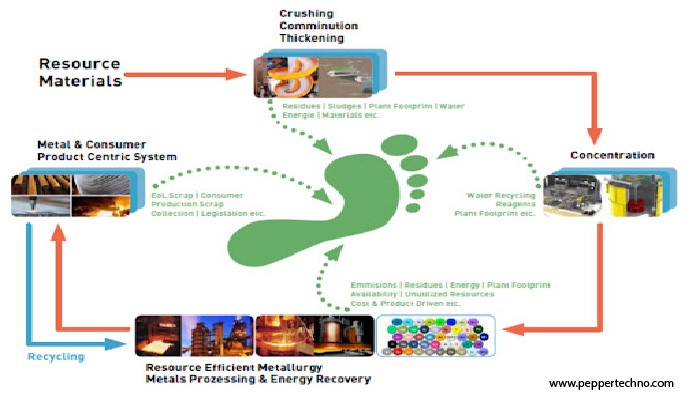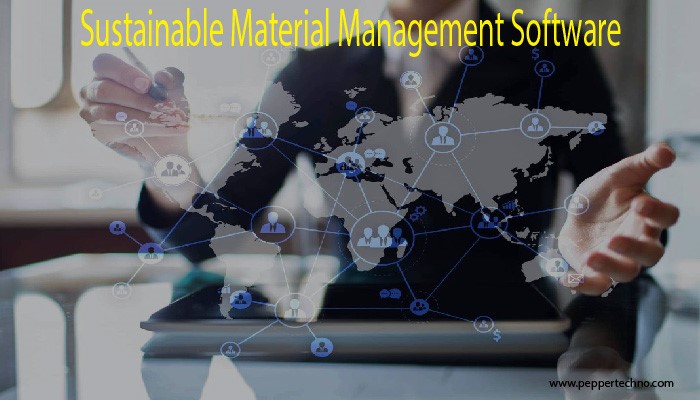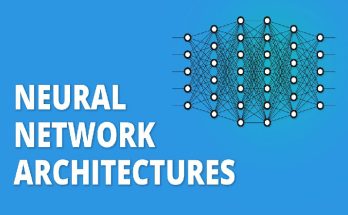Navigating Sustainability with Innovative Tools: Exploring Sustainable Material Management Software
In today’s global landscape, sustainability has emerged as a critical imperative for businesses seeking to minimize their environmental footprint and enhance their social responsibility. Sustainable Material Management Software (SMMS) represents a transformative solution that enables organizations to streamline their material usage, reduce waste, and make informed decisions that benefit both the planet and the bottom line. In this article, we delve into the significance of SMMS, its key features, benefits, challenges, and its role in driving the transition towards a circular economy.

Understanding Sustainable Material Management Software
Sustainable Material Management Software (SMMS) encompasses a suite of digital tools designed to optimize the management of materials throughout their lifecycle, from sourcing and production to consumption and disposal. These software solutions leverage data analytics, artificial intelligence, and automation to track, monitor, and analyze material flows, enabling organizations to identify inefficiencies, reduce waste, and enhance resource efficiency.
Key Features of Sustainable Material Management Software
- Material Tracking and Traceability: SMMS enables organizations to track the movement of materials across the supply chain, providing visibility into their origin, composition, and destination. By capturing data at each stage of the material lifecycle, organizations can ensure transparency and traceability, facilitating compliance with regulatory requirements and sustainability standards.
- Resource Optimization and Efficiency: SMMS helps organizations optimize their use of resources by identifying opportunities to reduce waste, improve resource efficiency, and minimize environmental impact. Through real-time monitoring and analysis, organizations can identify inefficiencies, optimize processes, and make data-driven decisions to enhance sustainability performance.
- Lifecycle Assessment and Impact Analysis: SMMS facilitates lifecycle assessments and environmental impact analyses, enabling organizations to evaluate the environmental footprint of materials and products throughout their lifecycle. By quantifying environmental impacts, organizations can identify hotspots, prioritize interventions, and design more sustainable products and processes.
- Supply Chain Collaboration and Integration: SMMS fosters collaboration and integration across the supply chain, enabling organizations to engage with suppliers, customers, and stakeholders to promote sustainability goals. By sharing data and insights, organizations can build resilient supply chains, mitigate risks, and drive collective action towards a more sustainable future.
Benefits of Sustainable Material Management Software
- Cost Savings and Efficiency Gains: By optimizing material usage, reducing waste, and improving resource efficiency, SMMS can generate significant cost savings and efficiency gains for organizations. From reduced raw material costs to lower waste disposal expenses, the financial benefits of sustainability extend beyond environmental stewardship.
- Risk Mitigation and Compliance: SMMS helps organizations mitigate risks associated with regulatory non-compliance, supply chain disruptions, and reputational damage. By proactively managing environmental and social risks, organizations can enhance their resilience and safeguard their reputation in an increasingly complex and interconnected world.
- Enhanced Sustainability Performance: SMMS enables organizations to enhance their sustainability performance by quantifying environmental impacts, setting targets, and monitoring progress towards sustainability goals. By aligning sustainability objectives with business strategies, organizations can create value for stakeholders and differentiate themselves in the marketplace.
- Stakeholder Engagement and Transparency: SMMS promotes stakeholder engagement and transparency by providing visibility into material flows, environmental impacts, and sustainability initiatives. By communicating effectively with stakeholders, organizations can build trust, enhance brand reputation, and demonstrate their commitment to sustainability leadership.
Challenges and Opportunities
While SMMS offers significant benefits, it also presents challenges that organizations must navigate:
- Data Management and Integration: Effective SMMS implementation requires robust data management and integration capabilities to collect, analyze, and visualize large volumes of data from disparate sources. Organizations must invest in data infrastructure, interoperable systems, and data governance frameworks to ensure data quality, accuracy, and security.
- Behavioral Change and Culture Shift: Successful SMMS adoption depends on fostering a culture of sustainability and driving behavioral change across the organization. Organizations must engage employees, empower change agents, and incentivize sustainable behaviors to embed sustainability into the organizational DNA.
- Technology Investment and Scalability: Implementing SMMS requires investment in technology infrastructure, software solutions, and skilled personnel. Organizations must assess their technological readiness, scalability requirements, and long-term sustainability goals to select suitable SMMS solutions and maximize return on investment.
- Regulatory Complexity and Market Dynamics: SMMS must navigate a complex regulatory landscape, market dynamics, and stakeholder expectations, which vary across industries, regions, and supply chains. Organizations must stay abreast of regulatory developments, market trends, and emerging sustainability standards to ensure compliance and competitive advantage.
Conclusion: Driving Sustainable Transformation
Sustainable Material Management Software (SMMS) represents a powerful tool for organizations seeking to navigate the complexities of sustainability and drive meaningful change across their operations and supply chains. By leveraging data-driven insights, organizations can optimize material usage, reduce waste, and enhance resource efficiency, thereby creating value for stakeholders and contributing to a more sustainable future.
As the imperative for sustainability grows stronger, SMMS will play an increasingly vital role in helping organizations achieve their sustainability goals, mitigate risks, and seize opportunities for innovation and growth in a rapidly evolving global landscape. Through collaborative efforts and a steadfast commitment to sustainability, organizations can harness the transformative potential of SMMS to build a more resilient, equitable, and sustainable world for generations to come.



